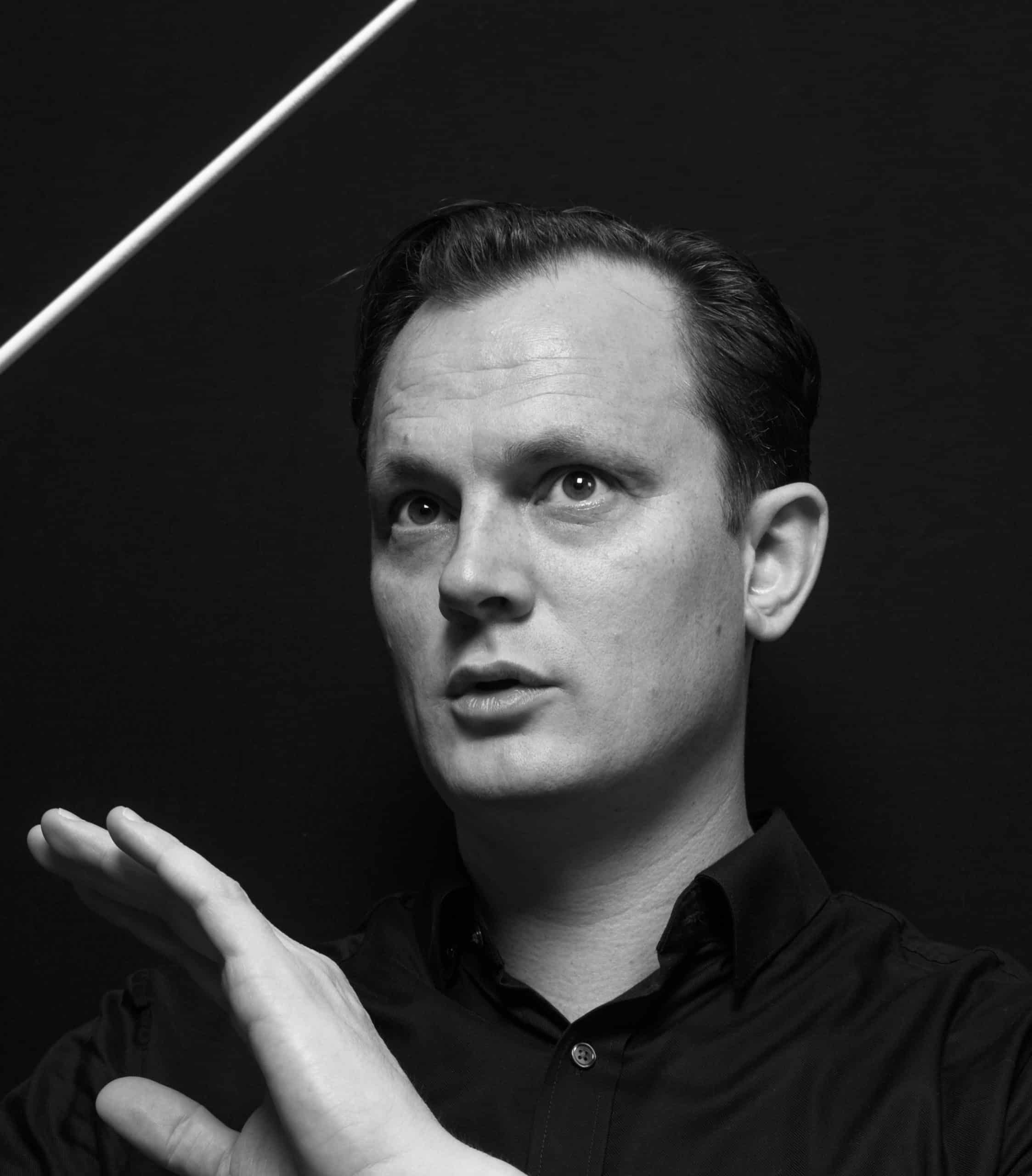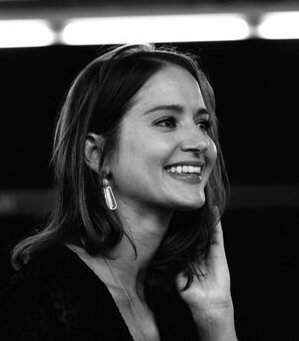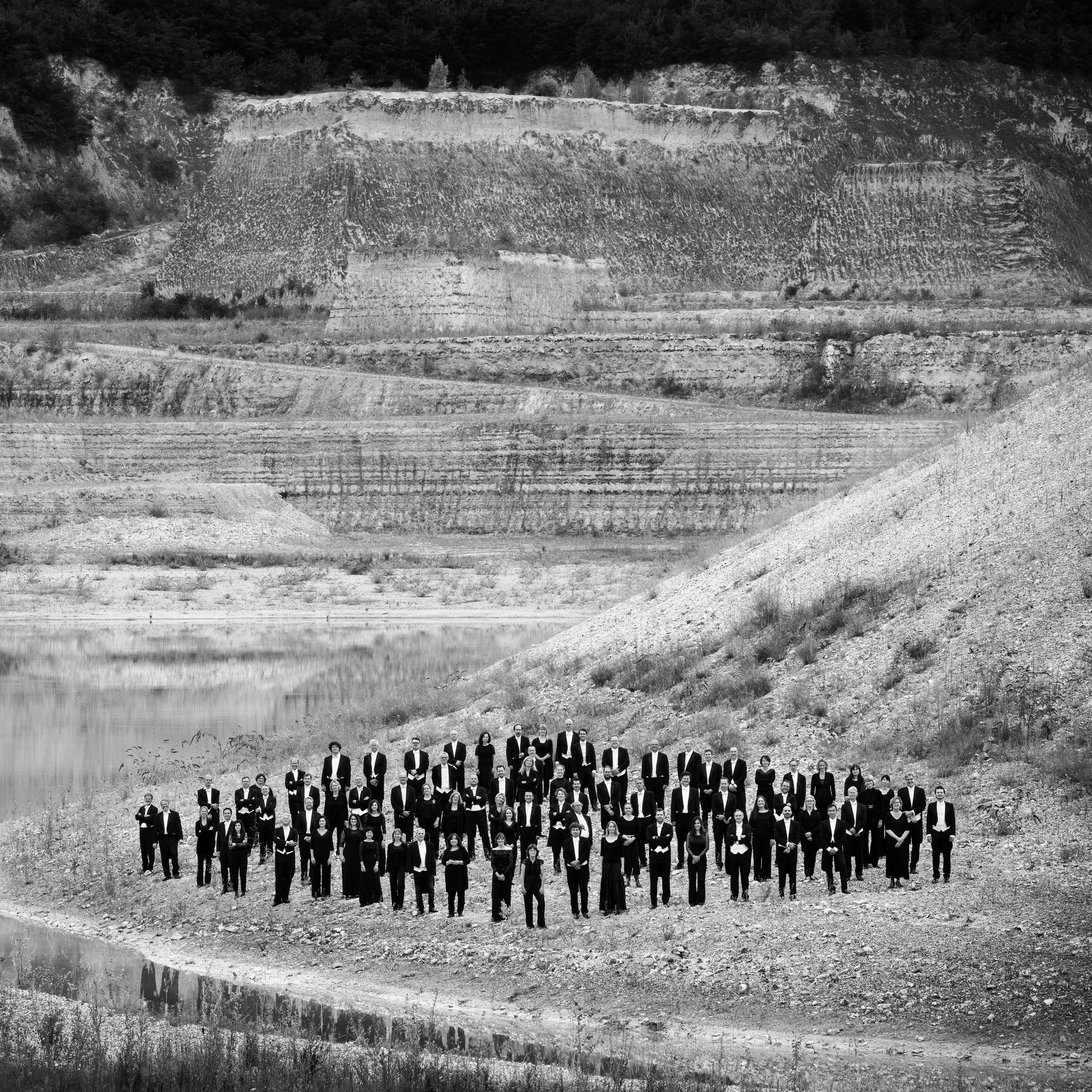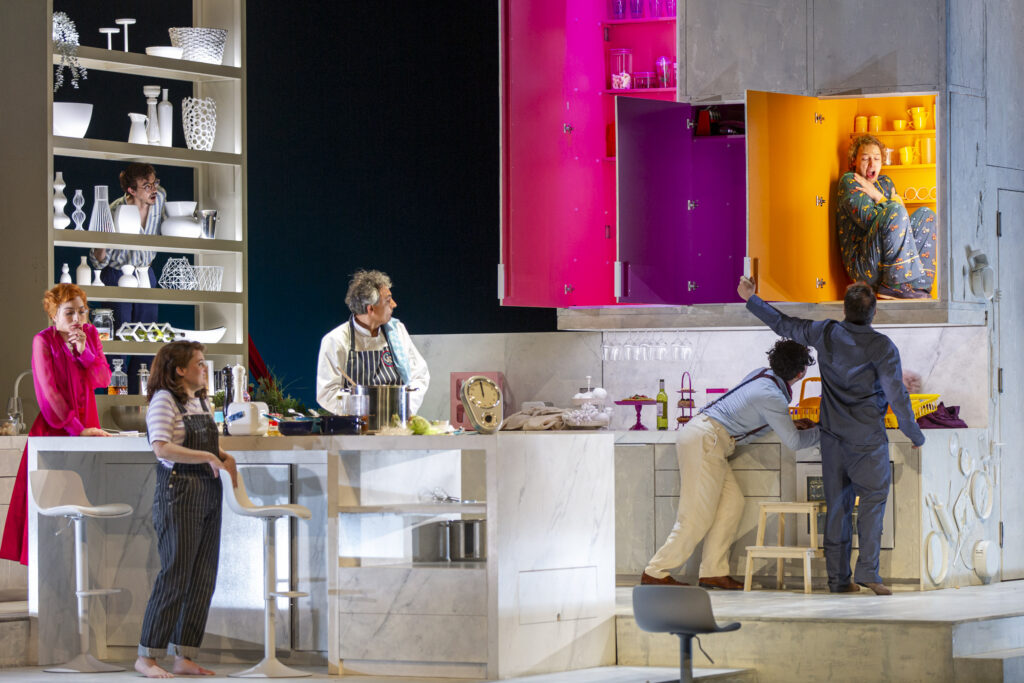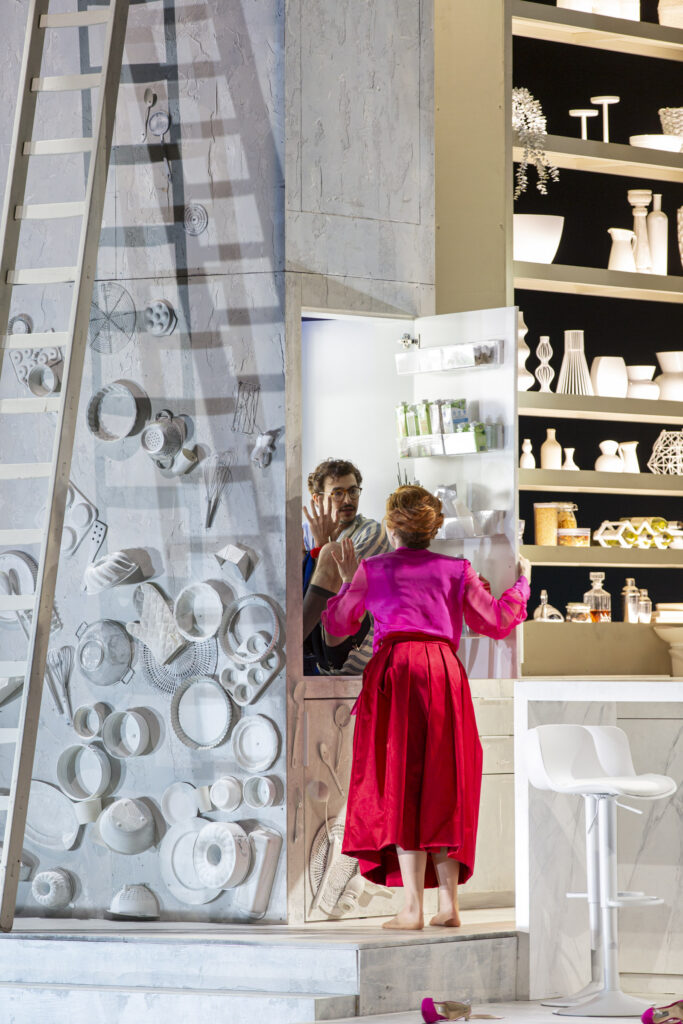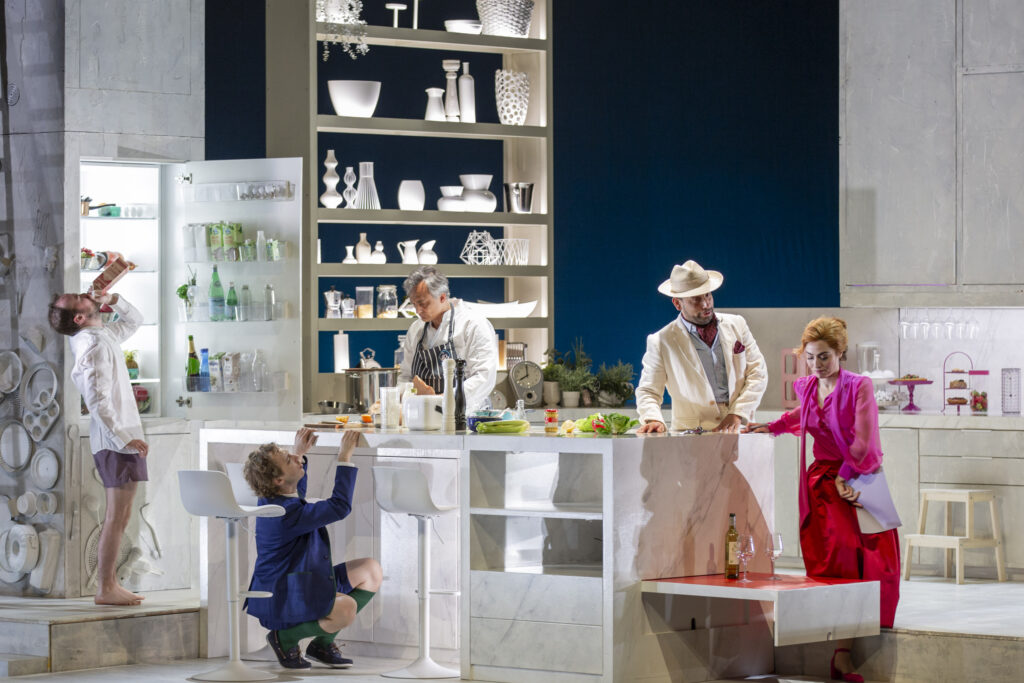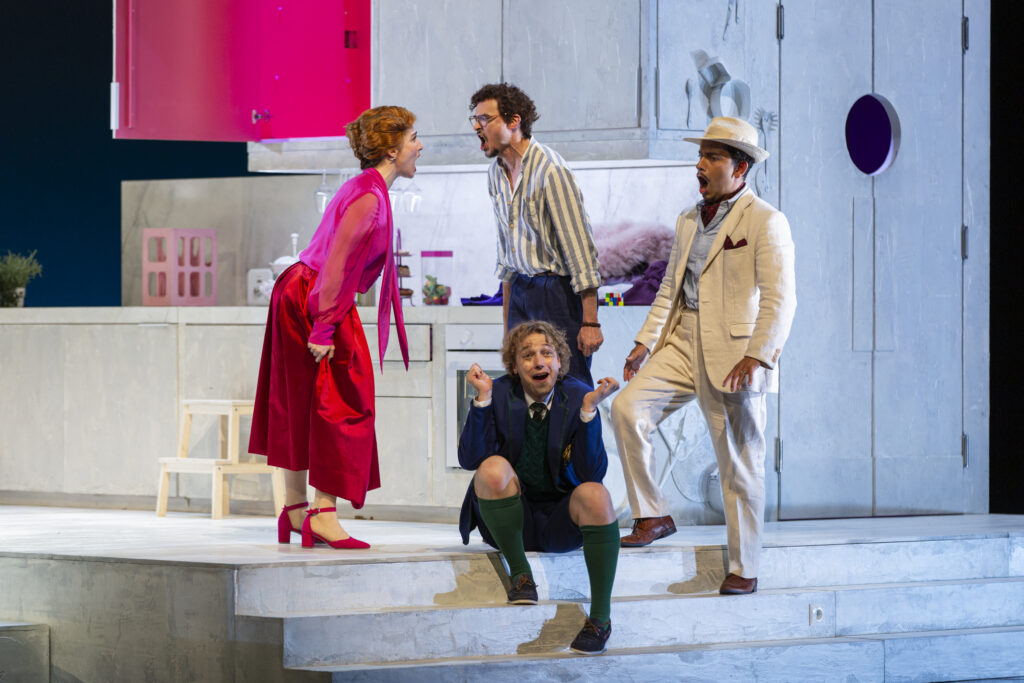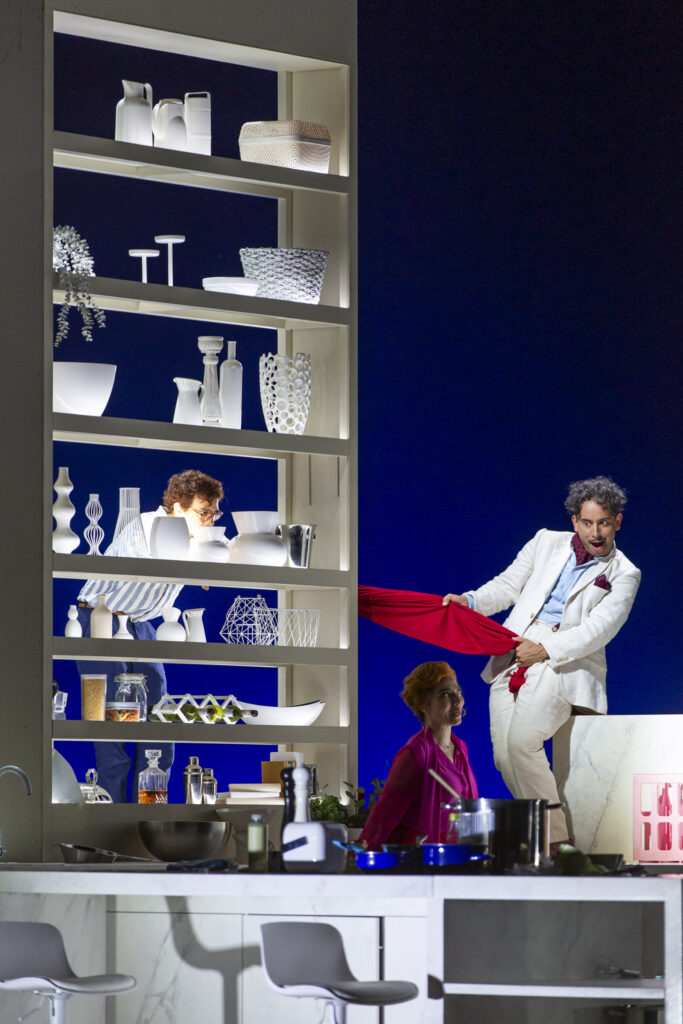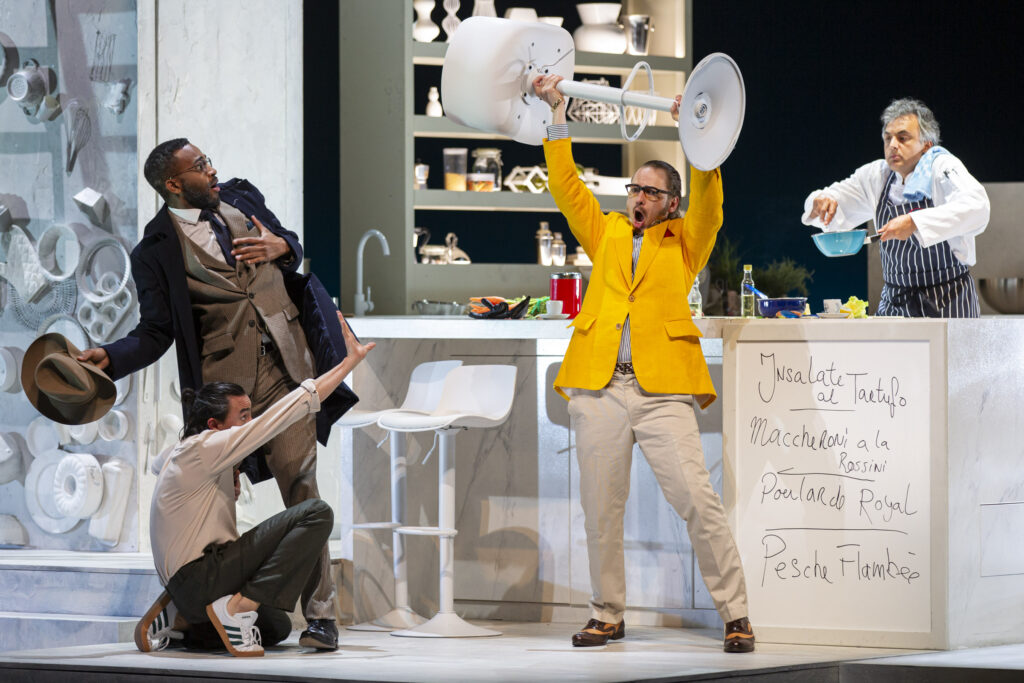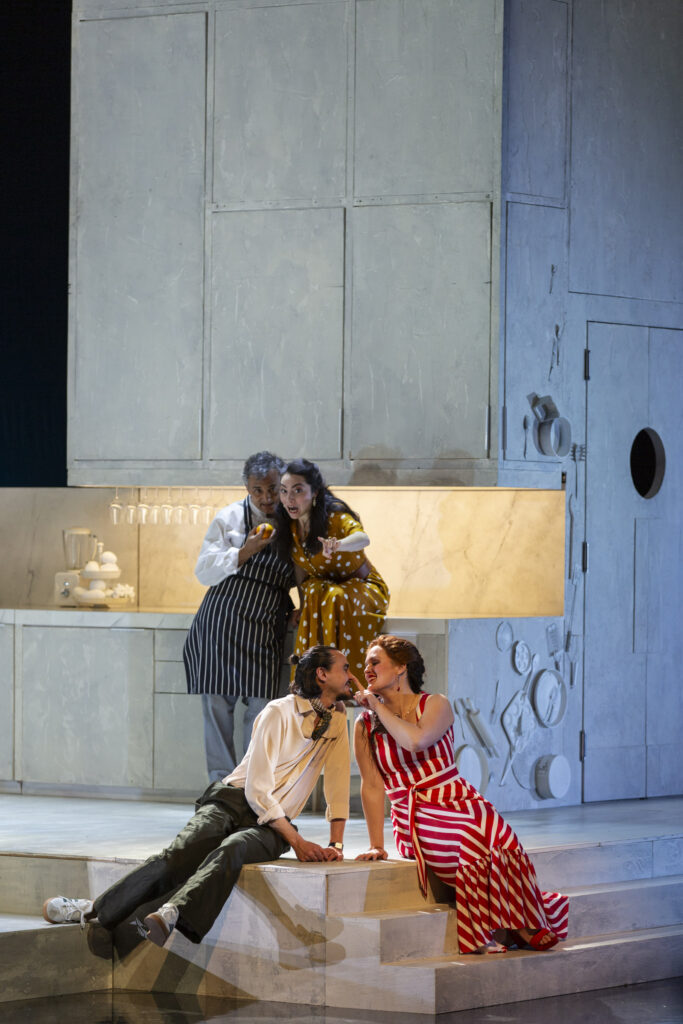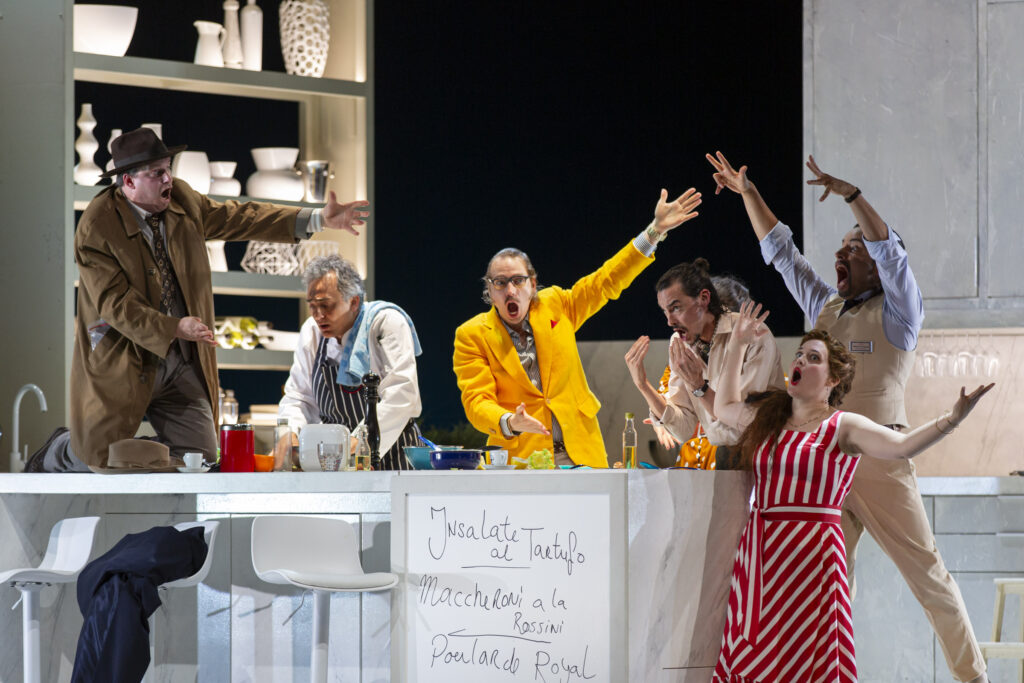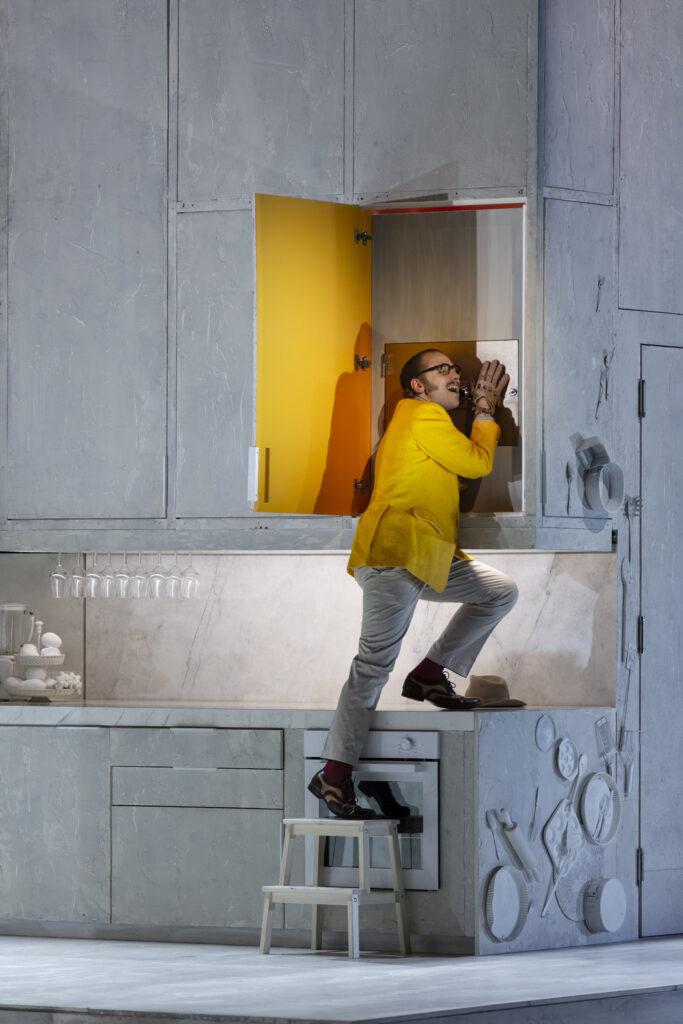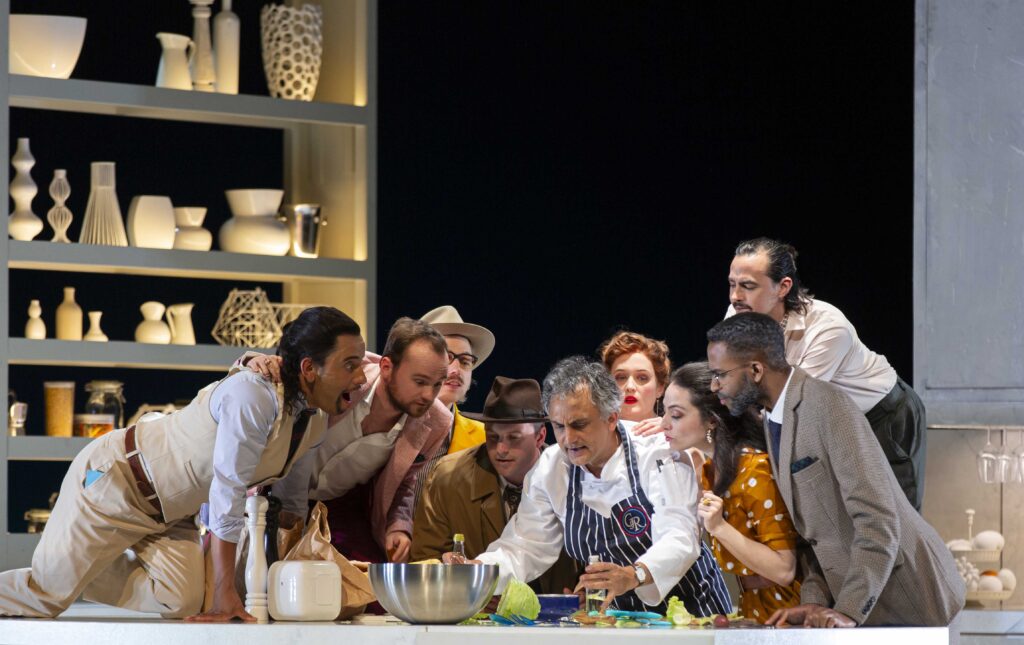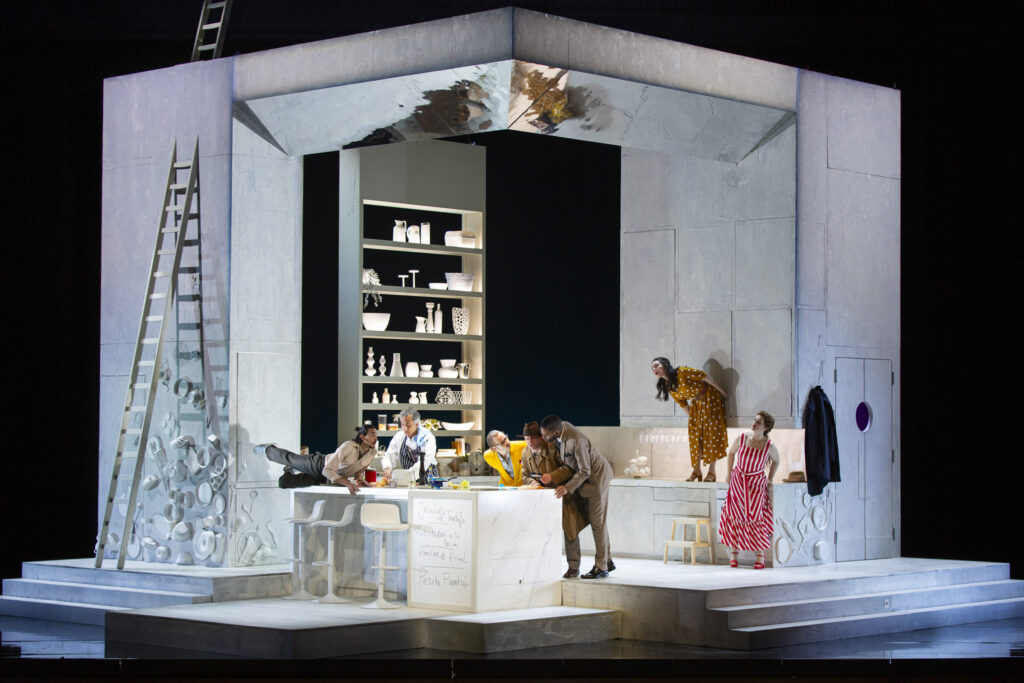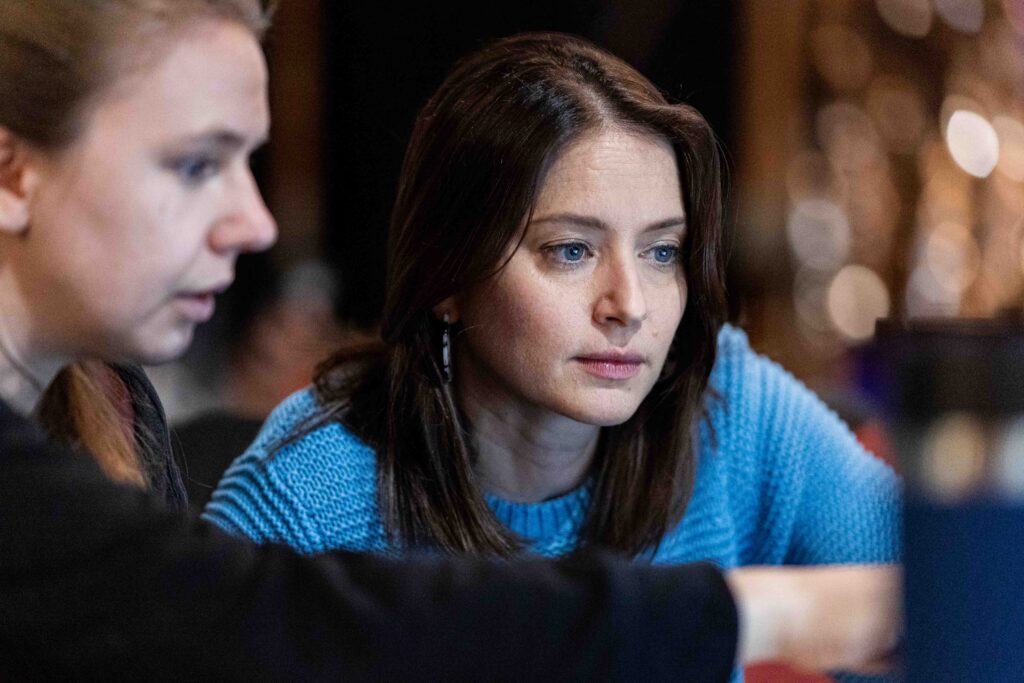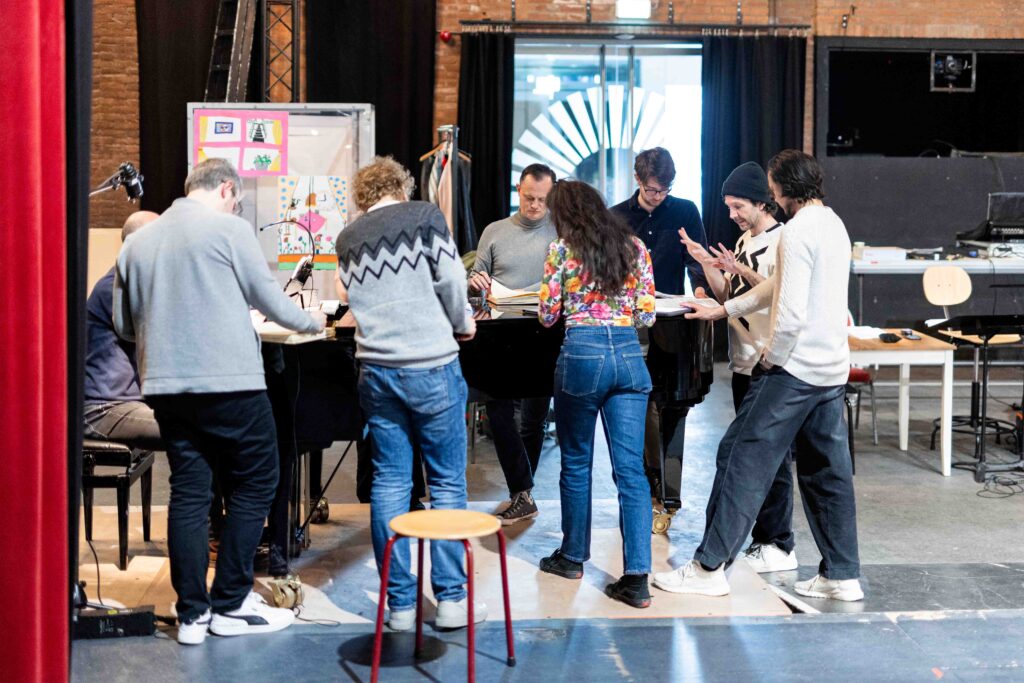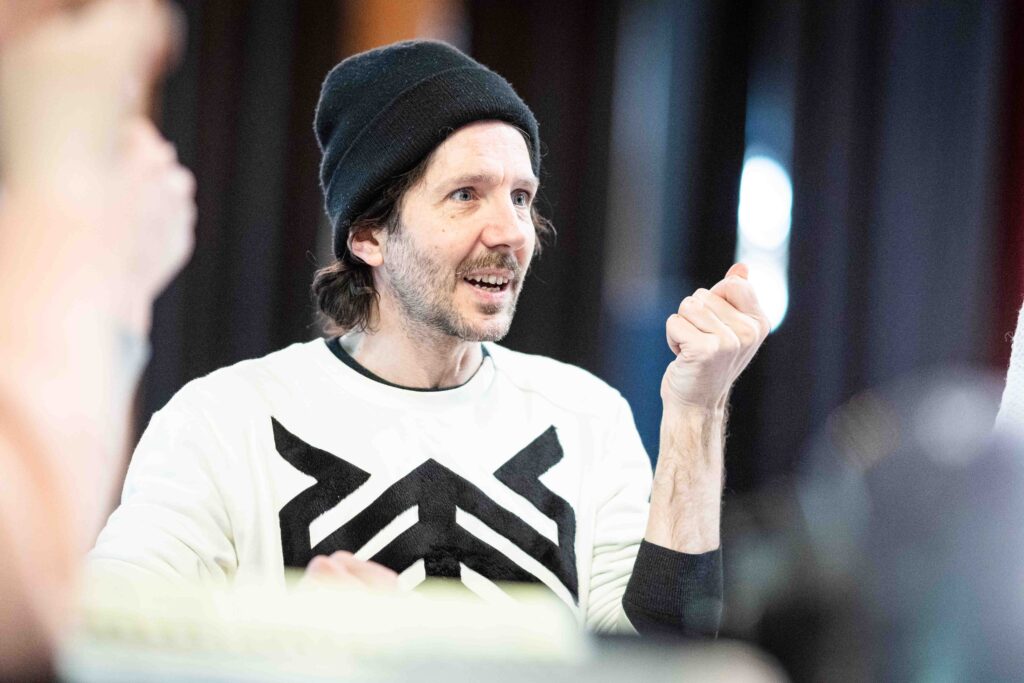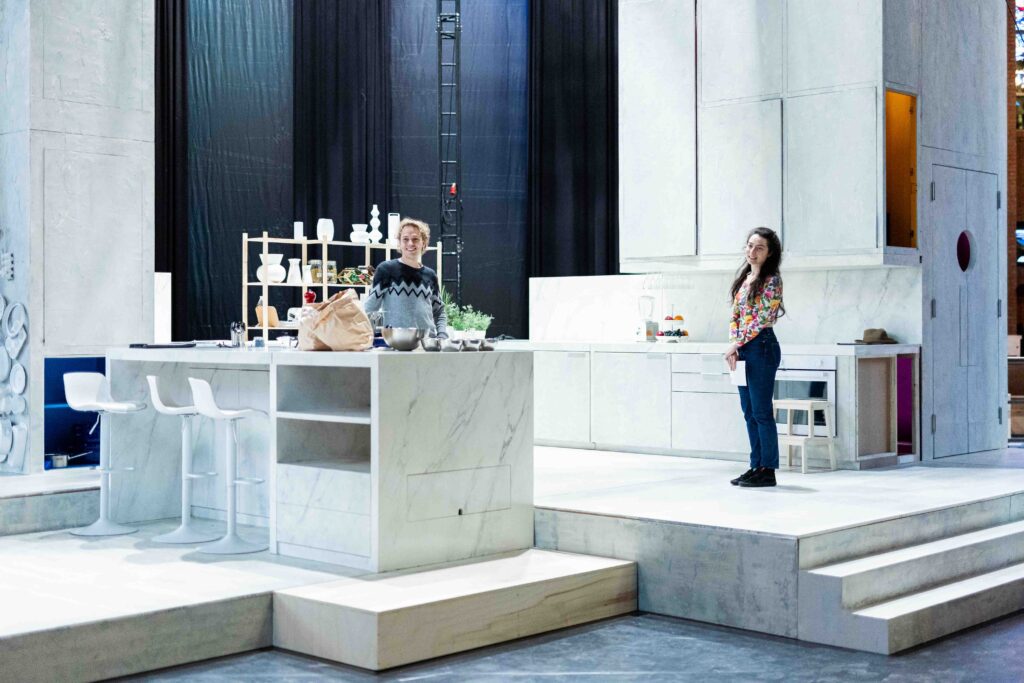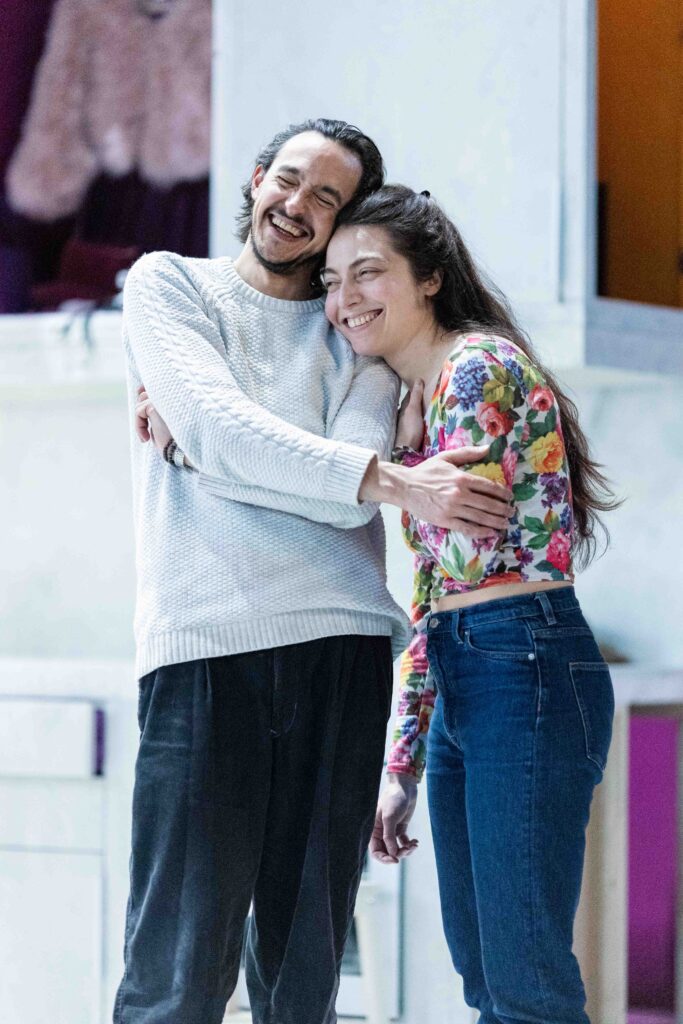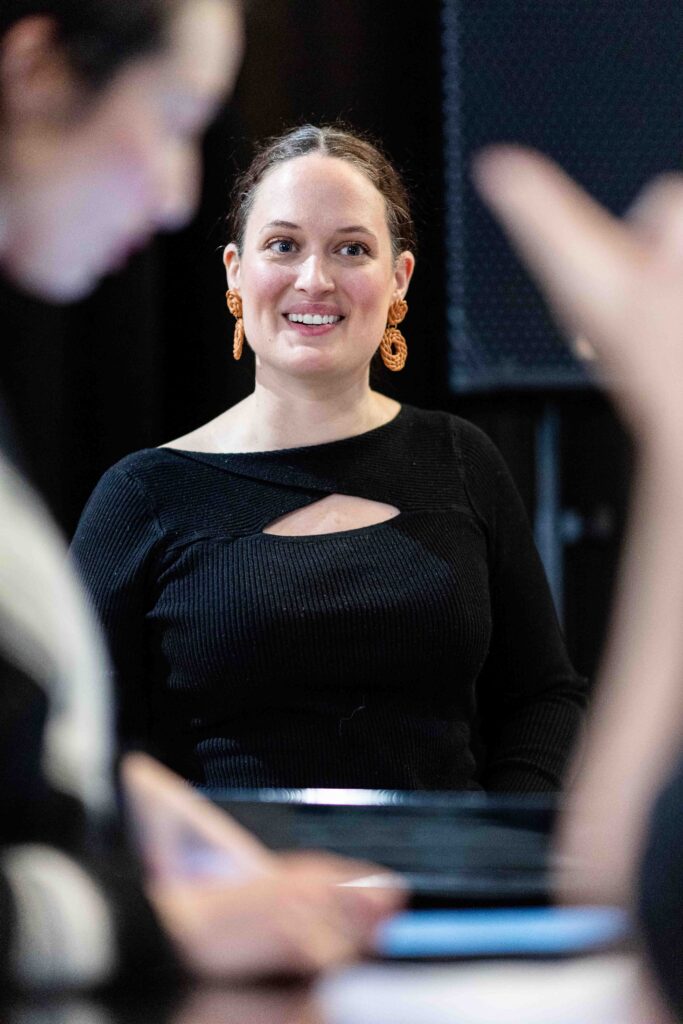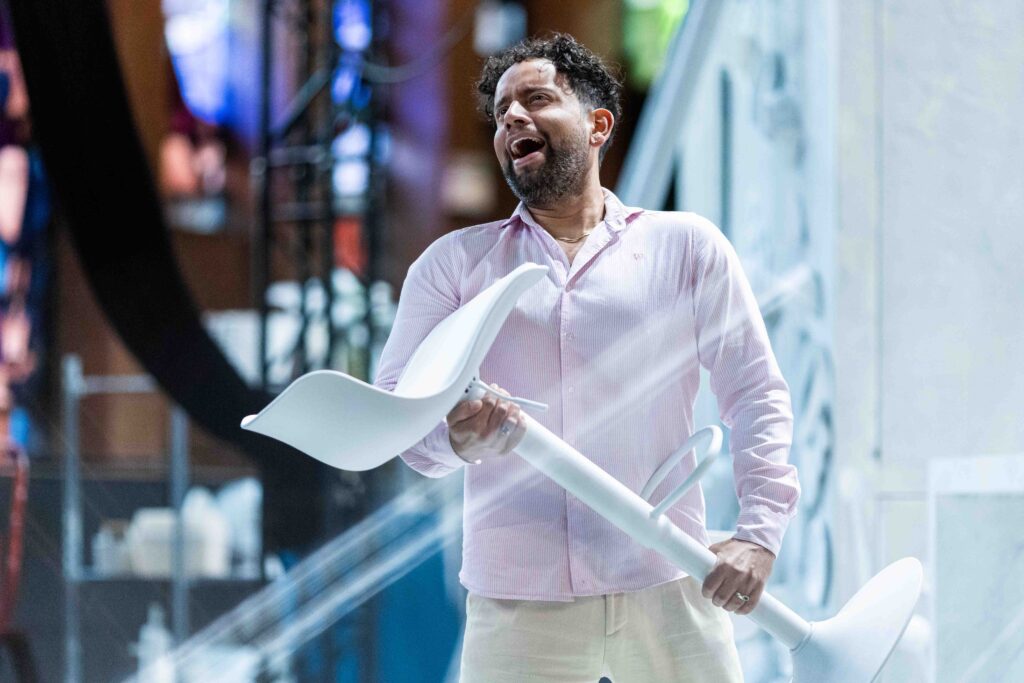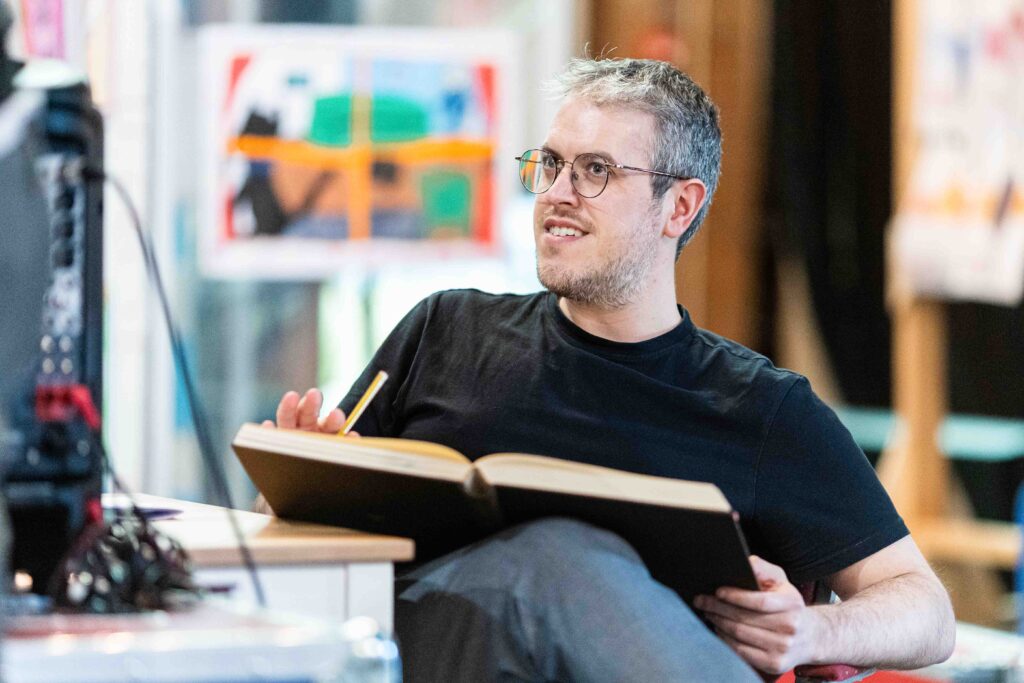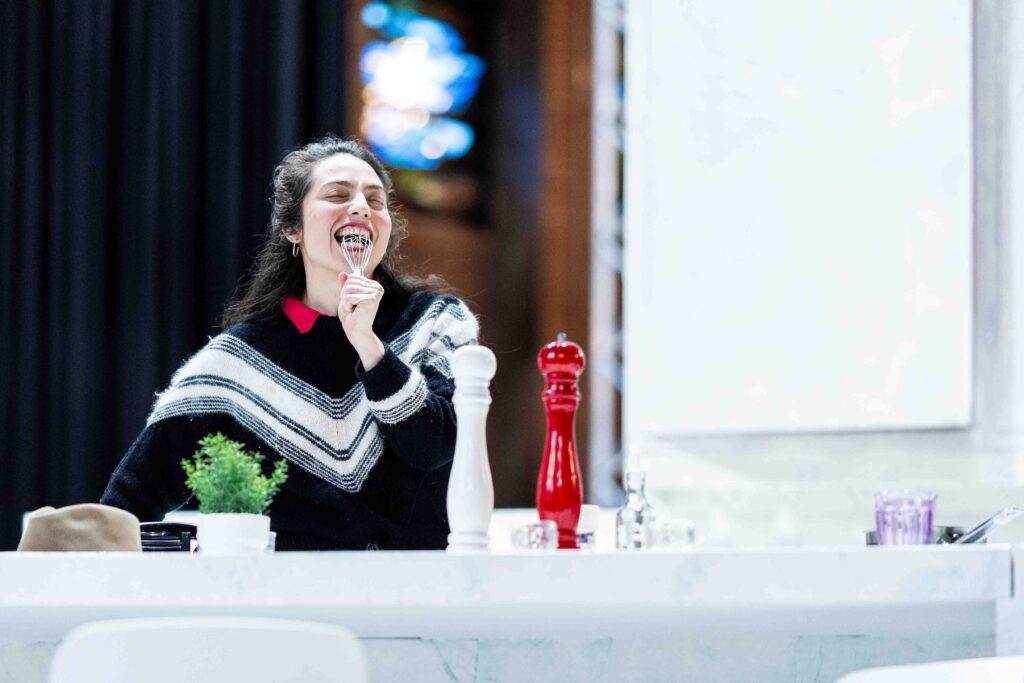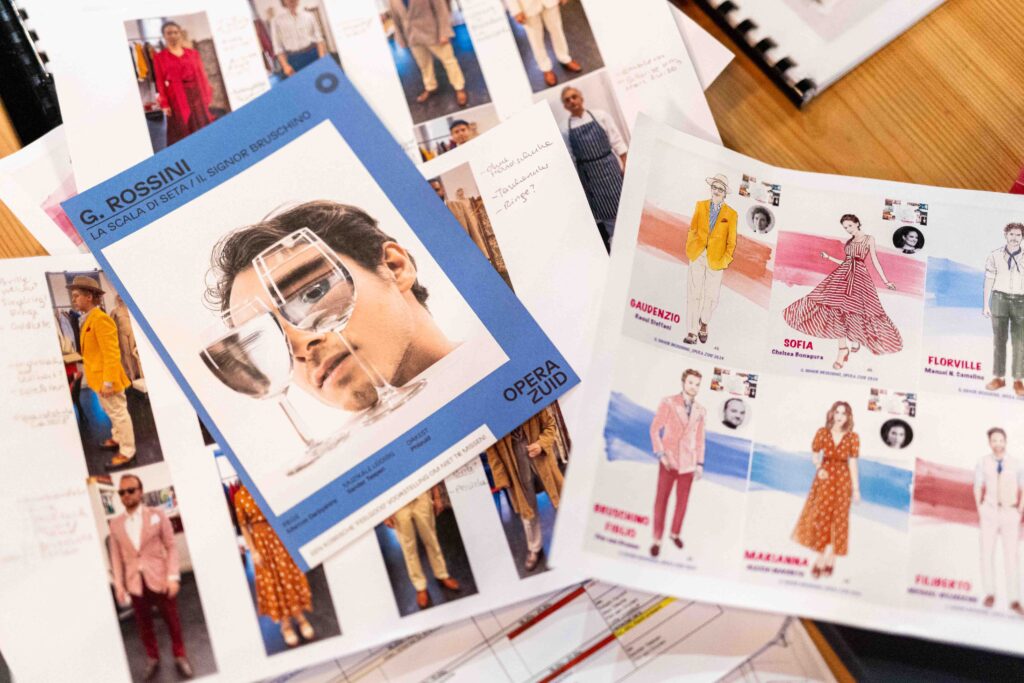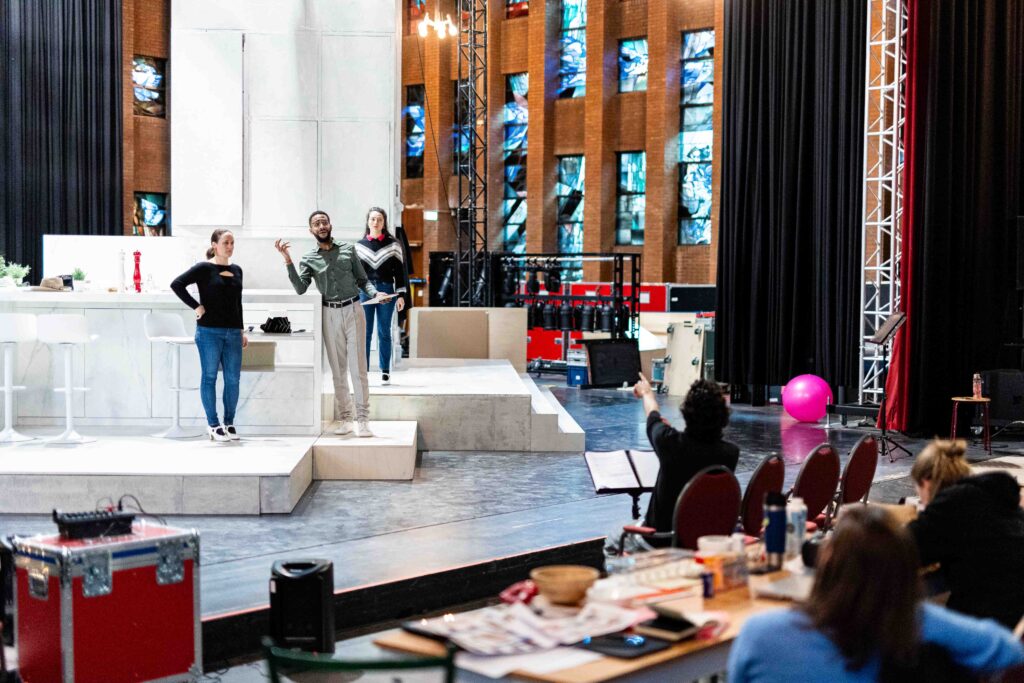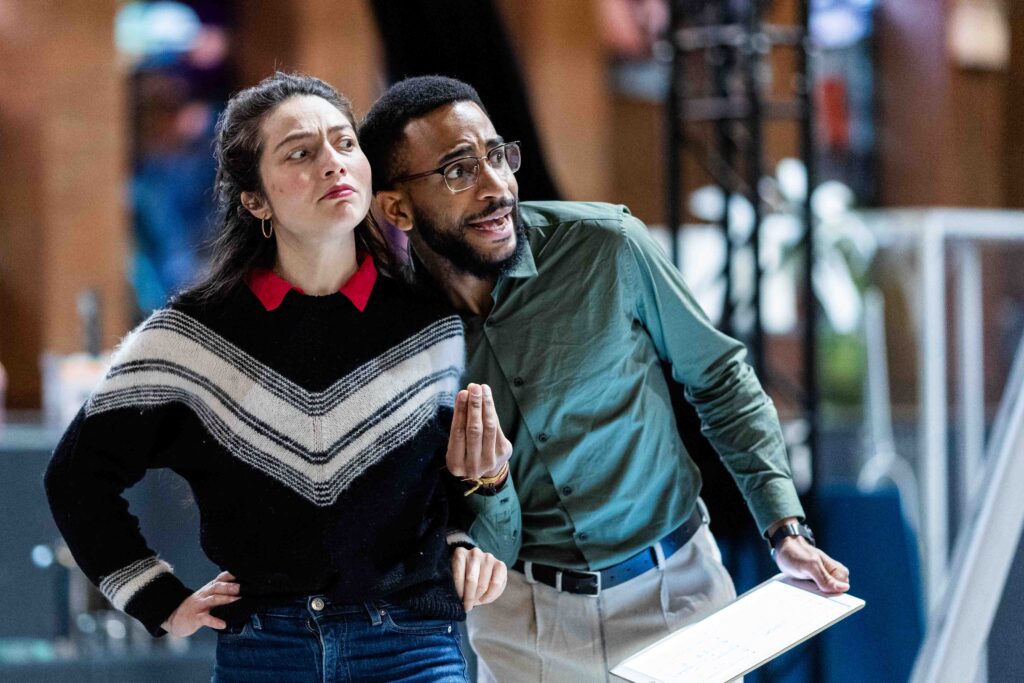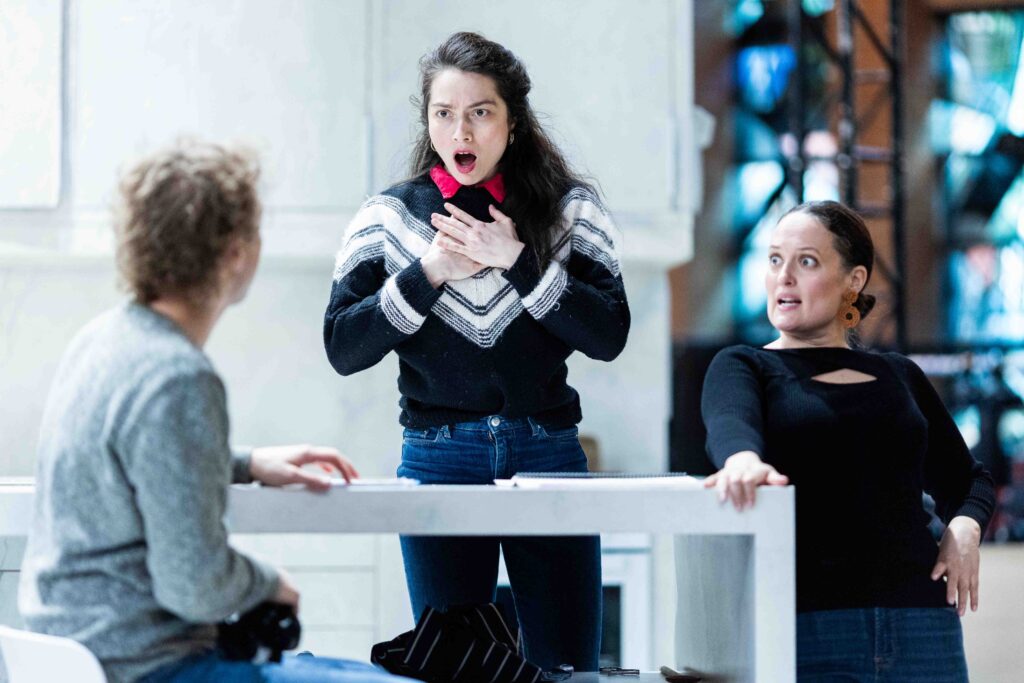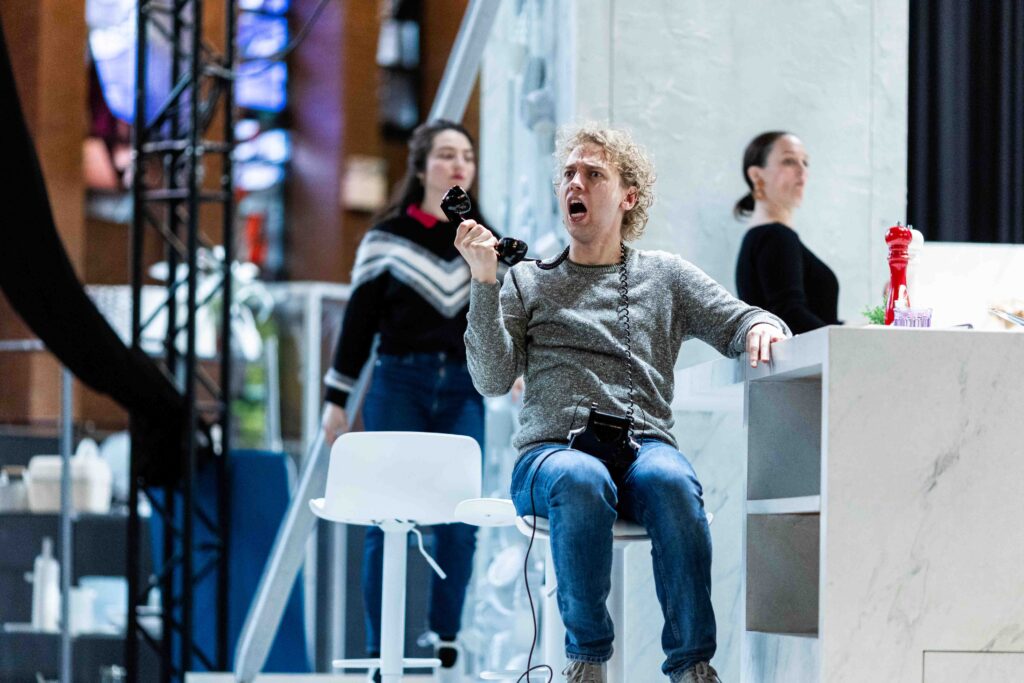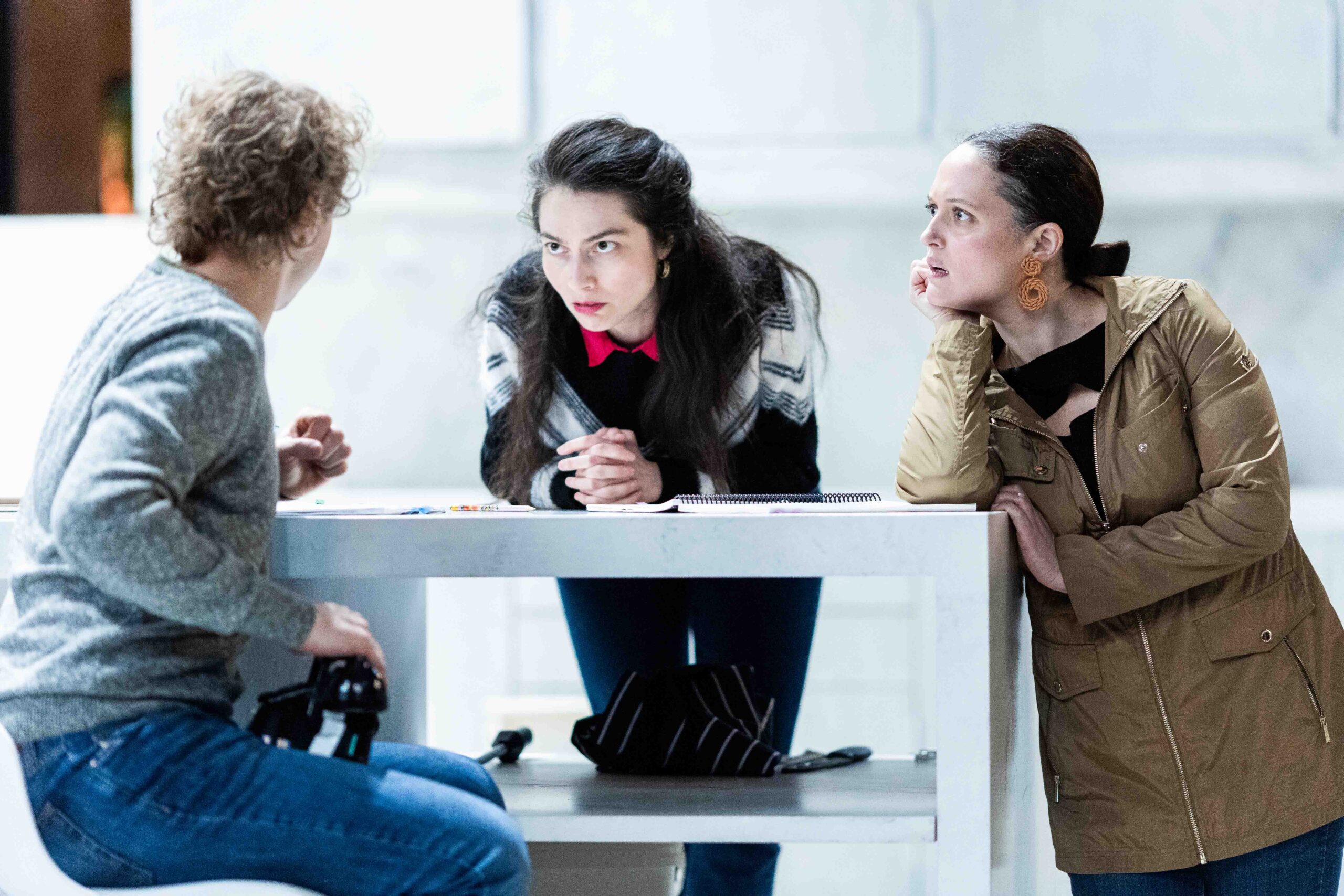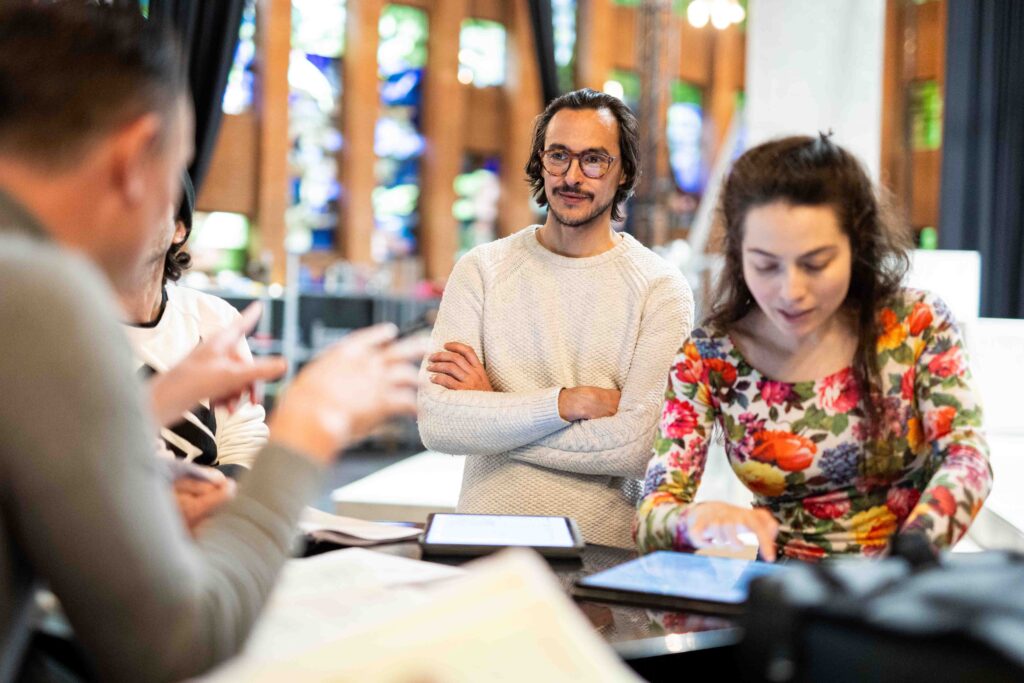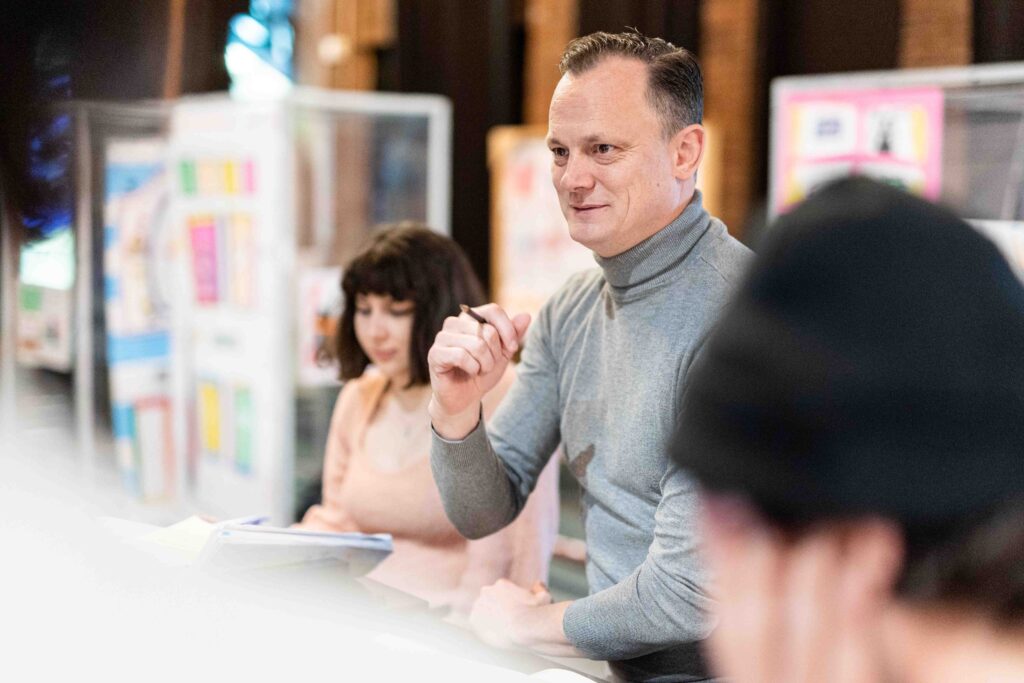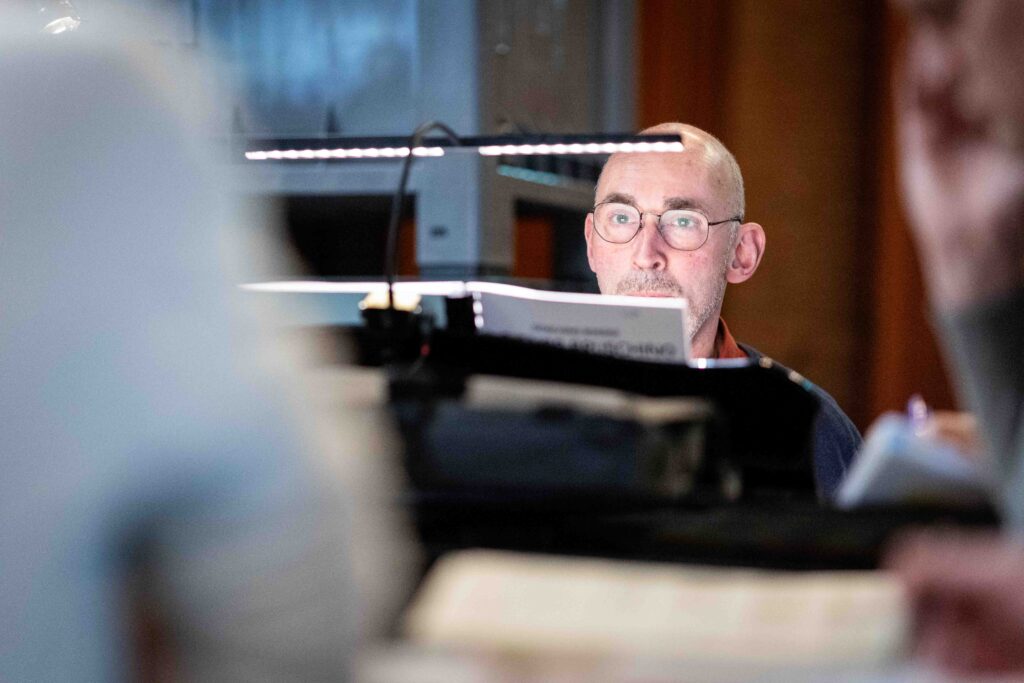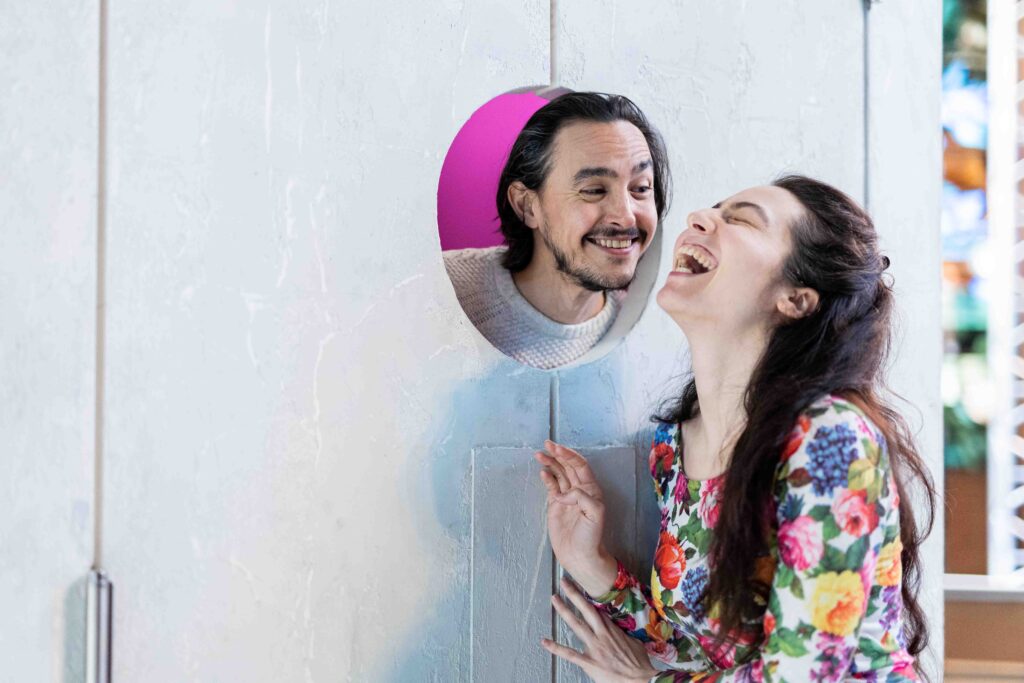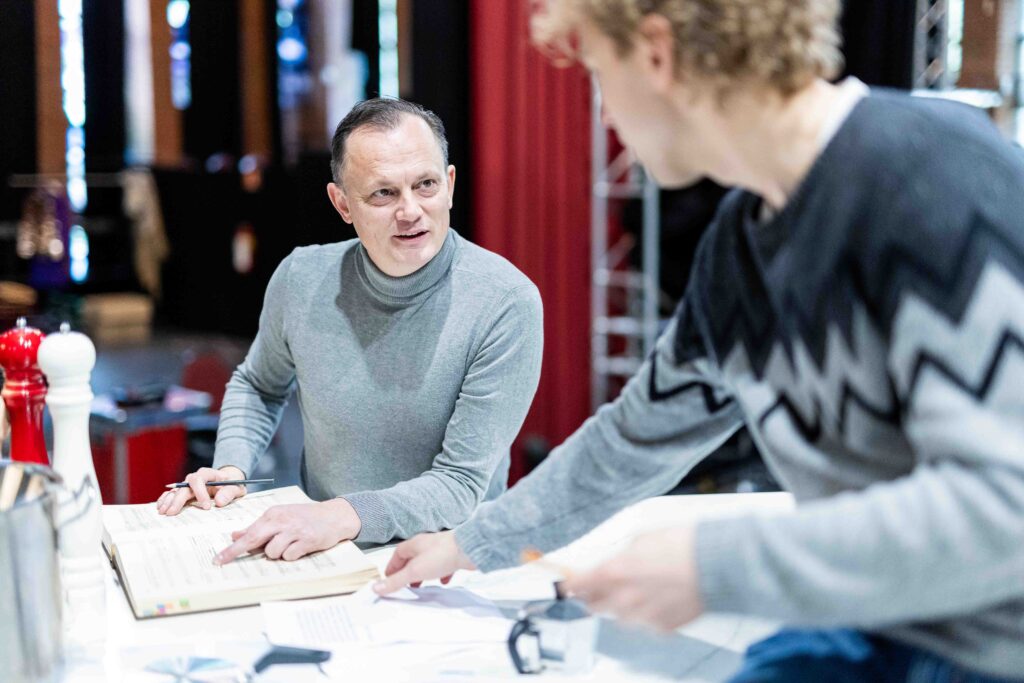Info
A comical ‘feel-good’ performance not to be missed!
From ingenious disguises to secret dates; the clichés of love are presented with a twist in the double bill La scala di seta / Il signor Bruschino by bel canto grandmaster Gioacchino Rossini. In these two operas the young Rossini first showed his grandiose romantic style. He composed his witty, energetic music on the comic stories of Giuseppe Maria Foppa.
In La scala di seta, Dorvil is secretly married to Giulia. Every evening he quietly climbs a silk ladder (scala di seta) to see his bride. But Giulia’s guardian has other ideas for her future and tries to marry her off to Blansac. All this creates comic scenes in which love wins.
In Il signor Bruschino, Florville tries with cunning schemes to get permission to marry his beloved Sofia and not Mr. Bruschino junior, who has Sofia’s guardian in mind as a marriage partner. But will he succeed?
Although all the secret loves and devious schemes in both one-act plays cause a lot of chaos and laughable commotion, everyone eventually declares love to the right person. This also applies to Darbyshire: ‘for me, these operas are a kind of love letter to Rossini himself… The composer created real gems, and that at the age of twenty’.
La scala di seta / Il signor Bruschino will be performed in Italian with Dutch and English surtitles.
Why did you choose these two works by Rossini? “Both operas provide insight into Rossini’s young brain. The composer experiments with comical situations and different musical elements. We chose La scala di seta and Il signor Bruschino because they both already have everything that Rossini will do later on, for example in Il barbiere di Siviglia. The operas are very well put together, both musically and in terms of content. In addition, I really like La scala di seta because the piece is so naughty and a woman is in control in this comedy. Then we see Il signor Bruschino as the second one-act play, in which a man is central. That contrast makes this double bill exciting and creates balance.’
Both operas fall under the ‘buffa’ genre; comic opera. Can we – the audience of today – still laugh at the jokes and jokes of the past? “Rossini’s work is based on the archetypes from the commedia dell’arte, but most people are no longer familiar with them. That is the challenge in these operas. We recreate the situations with our modern frame of reference, with what we – today – find humorous. But apart from that, Rossini’s music is incredibly funny, sparkling and energetic, even for us! So the music is going to be our guide on this journey. And those old-fashioned archetypes, we transform them into modern characters that we recognize.’
So we get to see a modern-day buffa variant? ‘Precisely! Many old comic elements are rather sexist and stereotyped. But humor is constantly changing and being reinvented all the time. Especially in recent years there has been a big change in comedy. Many things that we thought were funny twenty or even ten years ago are now considered passé. I think opera should reflect that shift, also in the way we make comedy.”











